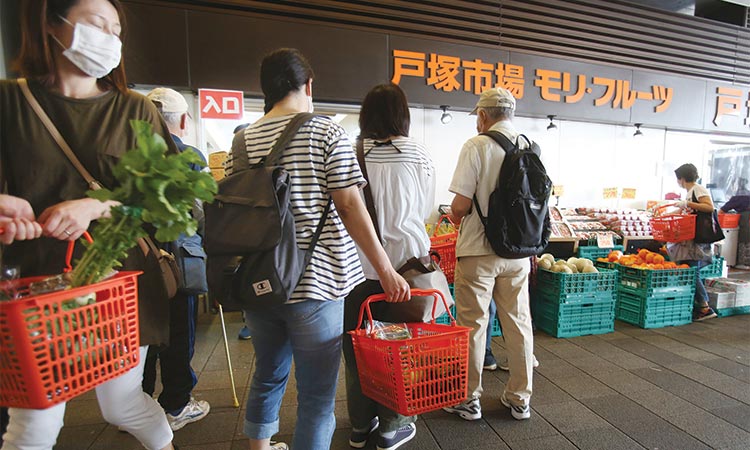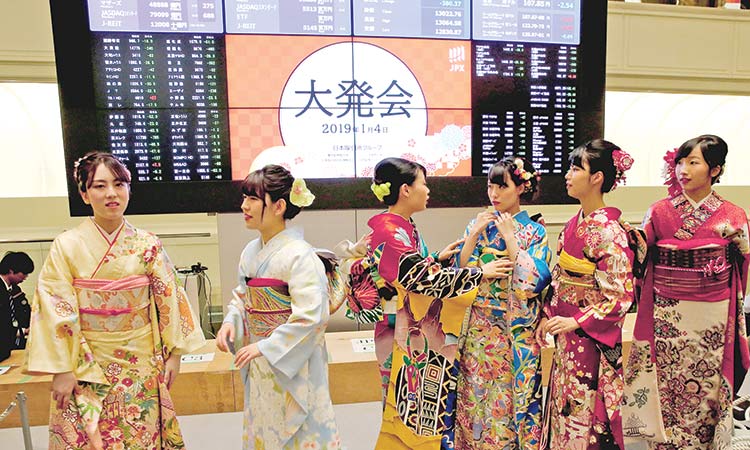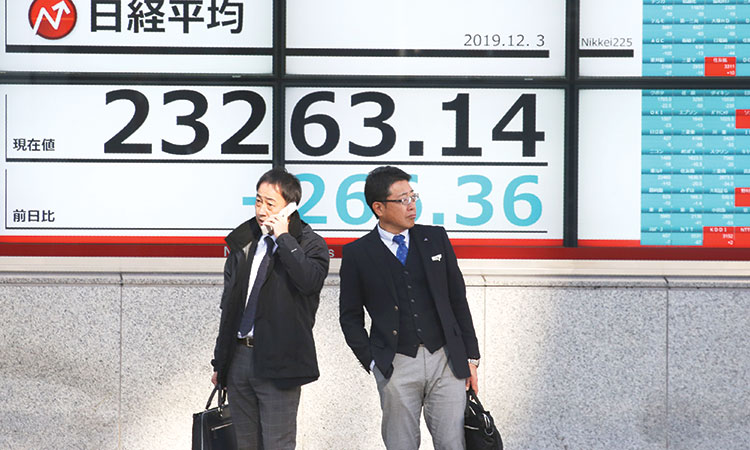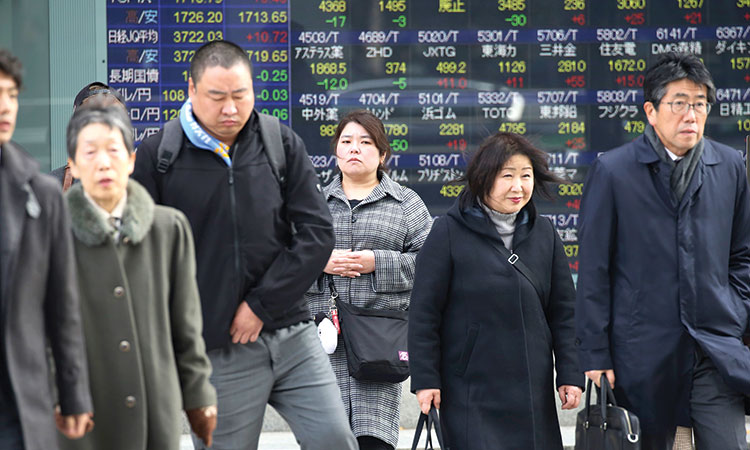Japan’s household spending dips at record pace on pandemic woes

Shoppers at a fruit and vegetable shop in Yokohama, Japan. Associated Press
The dismal number will keep policymakers under pressure to prevent a larger decline in the economy, which is expected to fall deeper into recession this quarter.
The Bank of Japan (BOJ), however, is likely to maintain in June its view the economy will recover in the latter half of this year, sources say, heightening the chance it will forgo bold monetary easing steps.
Household spending tumbled 11.1% in April from a year earlier, government data showed on Friday, slower than a median forecast for a 15.4% fall but the fastest rate of decline since comparable data became available in 2001.
Many analysts expect consumption to have bottomed out in April or May, with businesses now re-opening after last month’s lifting of nationwide lockdowns. But any rebound will be fragile, as companies and households remain wary of spending, they say.
“Unless effective vaccines are developed, a strong recovery cannot be expected for the foreseeable future,” said Takeshi Minami, chief economist at Norinchukin Research Institute. Friday’s data showed some winners and losers.
Spending on bars, plane tickets, hotels and amusement parks tanked by around 90% as people were forced to stay home.
On the other hand, stay-home policies boosted spending on pasta by 70%, instant noodles by 43% and sanitary goods like face masks by 124%.
Overall, an expected rise in job losses and the hit to household sentiment from the pandemic will weigh on consumption.
“A lot of people are out of work and couldn’t look for jobs during lockdowns in April. Wages are likely to fall too, which will weigh on consumption,” said Yoshiki Shinke, chief economist at Dai-ichi Life Research Institute.
Separate data showed the coincident indicator index, a gauge on the current state of the economy, fell in April at the fastest pace since 1985, underscoring the huge blow to growth from the pandemic.
Prime Minister Shinzo Abe announced a state of emergency in April requesting citizens to stay home and businesses to close, hammering an economy already headed for a deep recession.
While Abe has lifted nationwide lockdowns, analysts expect the economy to suffer an annualised 22% contraction in the current quarter and recover only modestly in the second half of this year.
The Bank of Japan is likely to maintain this month its projection that the economy will gradually recover from the damage wrought by the coronavirus pandemic in the latter half of this year, sources said.
Such a view would reinforce market expectations that it will forgo bold monetary easing steps at its June rate review, after the BOJ and the government unveiled a slew of support measures for businesses in the last few months.
But it would contrast with the European Central Bank’s move on Thursday to offer a bigger-than-expected expansion of its stimulus package to prop up the economy.
The BOJ’s optimism reflects its growing conviction that the world’s third-largest economy hit bottom in April or May, when lockdown steps kept citizens home and businesses shut, said four sources familiar with the central bank’s thinking.
“There aren’t enough factors that would force the BOJ to alter its view the economy will emerge from the doldrums in latter half of this year as the pandemic subsides,” one of the sources said, a view echoed by three other sources.
That stance would reduce the likelihood of interest rate cuts or a massive increase in asset purchases at the BOJ’s June 15-16 rate review.
Still, many central bankers warn of risks that could slow the pace of recovery, such as a renewed spike in infections, rising job losses and a bigger-than-expected slump in emerging economies.
Reuters







